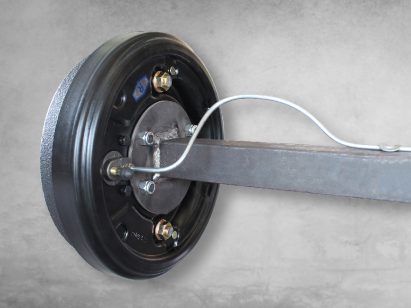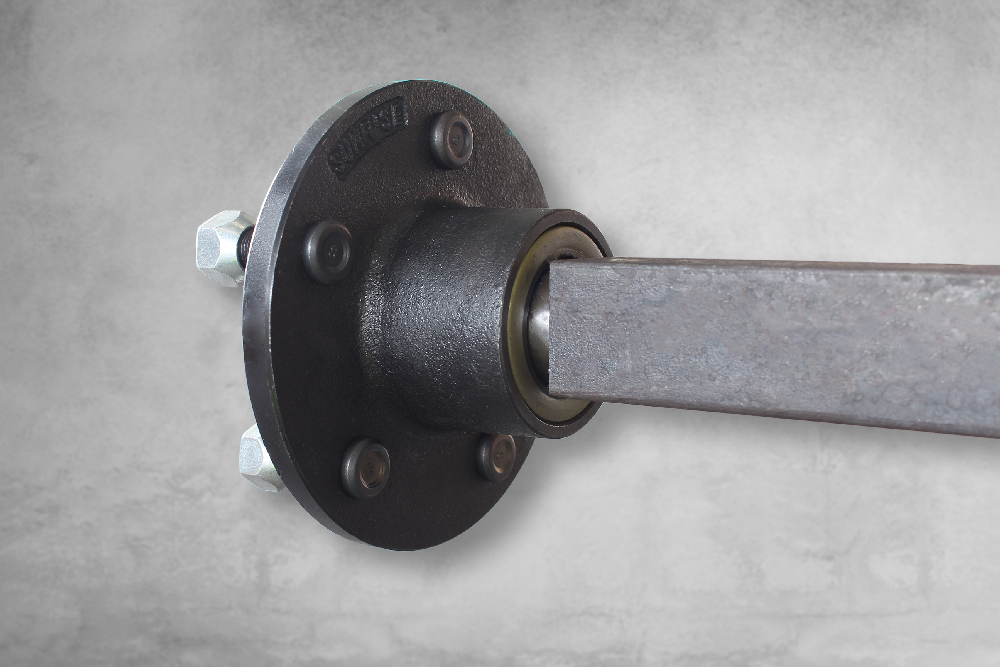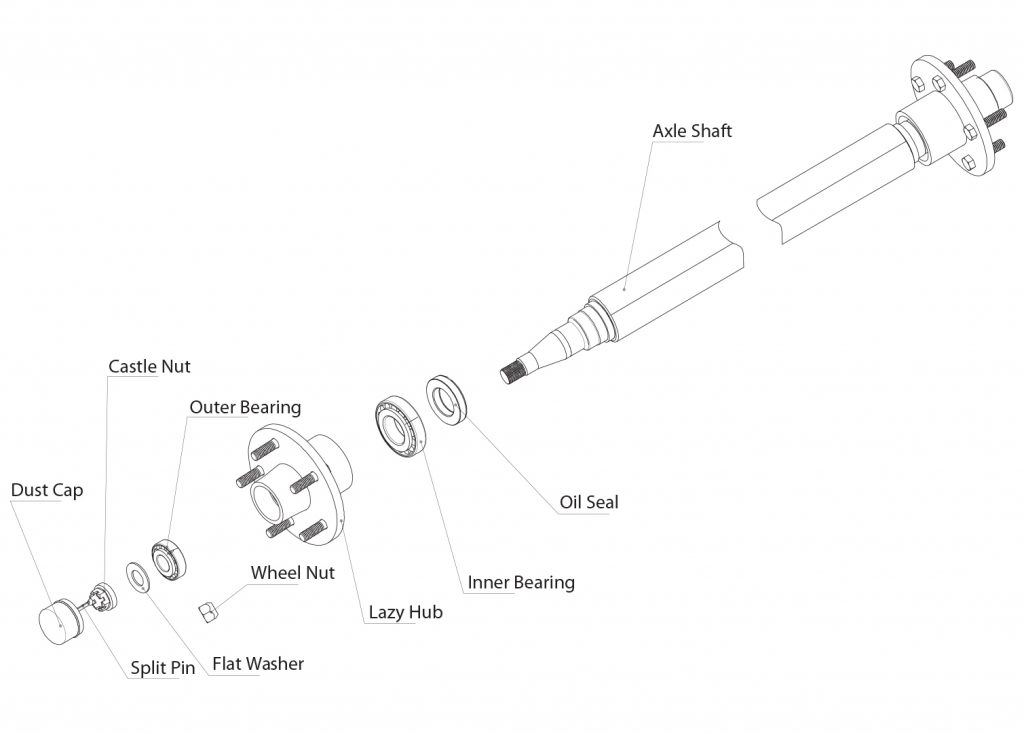
Hydraulic Drum Braked Axles: The Ultimate Guide to Safe Towing
When it comes to towing a trailer, safety…


Trailer axles are a crucial component of any trailer, responsible for supporting the weight of the cargo and providing stability while in motion. Among the different types of axles available, lazy non-braked axles are a popular choice for many trailer owners. In this post, we’ll take a closer look at lazy non-braked axles, what sets them apart from other types of axles, and how to properly maintain them.
Lazy non-braked axles, also known as idler axles, are a type of trailer axle that is not connected to the braking system of the vehicle. Unlike other types of axles, such as live or braked axles, lazy non-braked axles do not provide any braking force to the trailer. Instead, they are used as a support system for the weight of the cargo, and are typically found in the middle of a dual-axle trailer setup.
The main advantage of lazy non-braked axles is their simplicity. Without the need for braking components, these axles are generally easier and less expensive to maintain. Additionally, lazy non-braked axles can be a good choice for trailers that are carrying lightweight cargo, as they are not designed to provide braking force and may not be necessary.
However, there are a few important things to keep in mind when it comes to maintaining lazy non-braked axles. It is essential to regularly check the wheel bearings and make sure they are properly lubricated to prevent wear and tear. Additionally, the tires should be properly inflated and in good condition to ensure maximum performance and safety.
Lazy axles differ from other types of trailer axles, such as live or braked axles, as they are not connected to the braking system of the vehicle. This means they are not designed to provide braking force, but instead are used as a support system for the weight of the cargo. Lazy axles are generally simpler and less expensive to maintain compared to other trailer axles. However, it is important to regularly check the wheel bearings and properly inflate the tires for optimal performance and safety.
When it comes to selecting the best axle for your trailer, there are several factors to consider. The first thing to consider is the weight of your cargo. Heavy loads will require stronger and more durable axles, such as live axles or braked axles. If you plan to frequently transport lightweight cargo, lazy or idler axles may be a better option as they are simpler and less expensive to maintain. Another important factor to consider is the type of terrain you will be traveling on. Off-road conditions may require more robust axles with higher load capacity. Additionally, it is essential to ensure that the chosen axle is compatible with your towing vehicle and comply with the local laws and regulations
When selecting an axle for your trailer, it is important to consider the load capacity, which is the maximum weight the axle can support. It should match the Gross Vehicle Mass (GVM) of the trailer. It is advisable to choose an axle with a higher capacity than what is needed.
When considering the type of axle for your trailer, it is important to take into account the capacity of the wheels and tires, as they can greatly impact the choice of axle. Keep in mind that the wheel and tire load capacities should exceed that of the axle. Additionally, factors such as the length, width of the chassis, axle spacing, stud pattern, mounting position, and backspace of the wheel should also be taken into account when making a selection.

Lazy axles consist of a straight beam axle with lazy hubs fitted. (To view our available lazy hubs, click here.)
Here at Sunrise, we are committed to helping our customers. We have provided a guide on how to find your stud pattern so you can get the correct lazy hub for your axle set up. (Click here to find out how you can find your stud pattern here.)
In conclusion, lazy non-braked axles are a popular choice for many trailer owners due to their simplicity and affordability. While they may not provide braking force, they are an important component of a trailer’s overall support and stability system. Proper maintenance is essential to ensure that lazy non-braked axles continue to perform at their best and keep your trailer on the road.
If you require more information or want to be sure about your measurements, please contact your local Sunrise store where a team member will assist you.
With over 20+ years of experience, our team are always ready to assist with any enquiries you may have
Our products are designed, manufactured and rigorously tested to comply with Australian Design Rules
Orders are ready to be shipped Australia wide or picked up via Click & Collect typically within one to two business days
Rest assured we offer hassle free change of mind returns for all our products. See our Returns Policy for more information on this.
Need a hand or more information? We would love to hear from you. You can get in touch with us through phone, email or by filling out the following enquiry form. One of our team members will be in touch shortly after.
Need a hand? We would love to hear from you. You can get in touch with us through phone, email or by filling out the following enquiry form. One of our team members will be in touch shortly after.